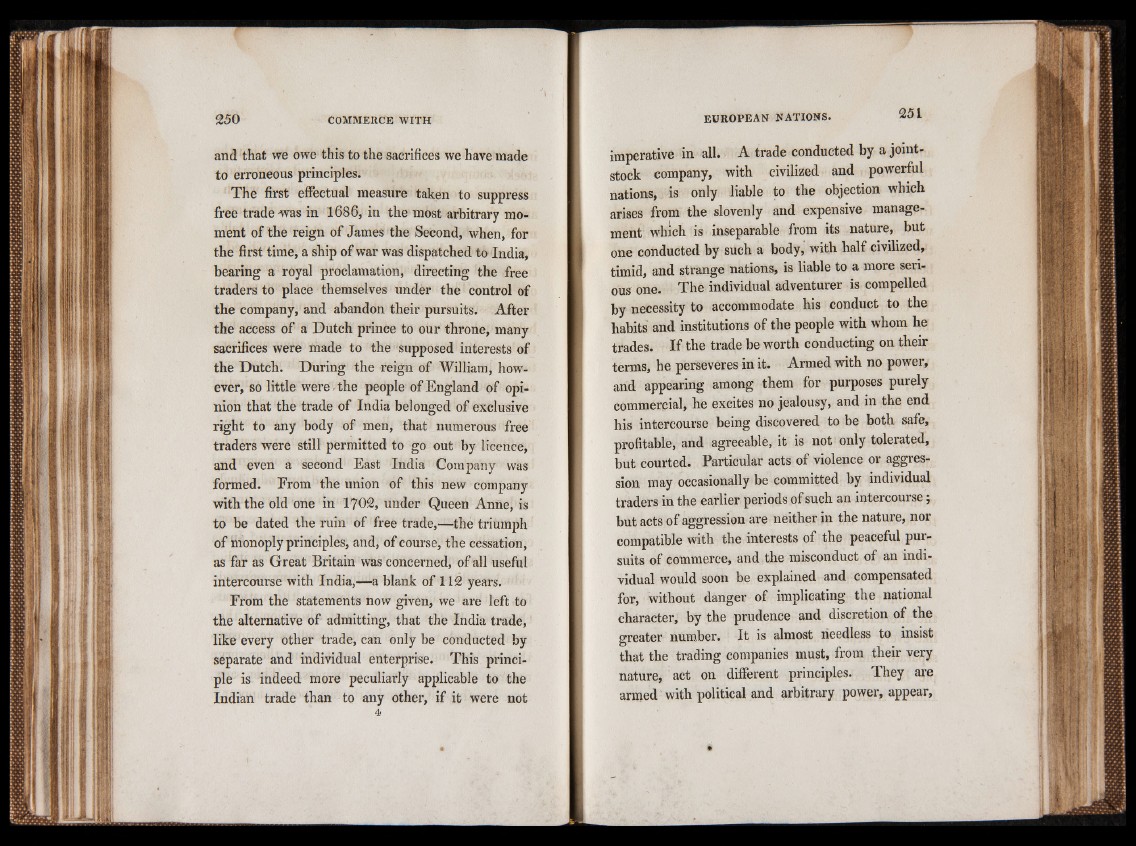
and that we owe this to the sacrifices we have made
to erroneous principles.
The first effectual measure taken to suppress
free trade was in 1686, in the most arbitrary moment
of the reign of James the Second, when, for
the first time, a ship of war was dispatched to India,
bearing a royal proclamation, directing the free
traders to place themselves under the control of
the company, and abandon their pursuits. After
the access of a Dutch prince to our throne, many
sacrifices were made to the supposed interests of
the Dutch. During the reign of William, however,
so little were - the people of England of opinion
that the trade of India belonged of exclusive
right to any body of men, that numerous free
traders were still permitted to go out by licence,
and even a second East India Company was
formed. From the union of this new company
with the old one in 1702, under Queen Anne, is
to be dated the ruin of free trade,—the triumph
of monoply principles, and, of course, the cessation,
as far as Great Britain was concerned, of all useful
intercourse with India,—a blank of 112 years.
From the statements now given, we are left to
the alternative of admitting, that the India trade,
like every other trade, can only be conducted by
separate and individual enterprise. This principle
is indeed more peculiarly applicable to the
Indian trade than to any other, if it were not 4
imperative in all. A trade conducted by a joint-
stock company, with civilized and powerful
nations, is only liable to the objection which
arises from the slovenly and expensive management
which is inseparable from its nature, but
one conducted by such a body, with half civilized,
timid, and strange nations, is liable to a more serious
one. The individual adventurer is compelled
by necessity to accommodate his conduct to the
habits and institutions of the people with whom he
trades. If the trade be worth conducting on their
terms, he perseveres in it. Armed with no power,
and appearing among them for purposes purely
commercial, he excites no jealousy, and in the end
his intercourse being discovered to be both safe,
profitable, and agreeable, it is not only tolerated,
but courted. Particular acts of violence or aggression
may occasionally be committed by individual
traders in the earlier periods of such an intercourse;
but acts of aggression are neither in the nature, nor
compatible with the interests of the peaceful pursuits
of commerce, and the misconduct of an individual
would soon be explained and compensated
for, without danger of implicating the national
character, by the prudence and discretion of the
greater number. It is almost needless to insist
that the trading companies must, from their very
nature, act on different principles. They are
armed with political and arbitrary power, appear,